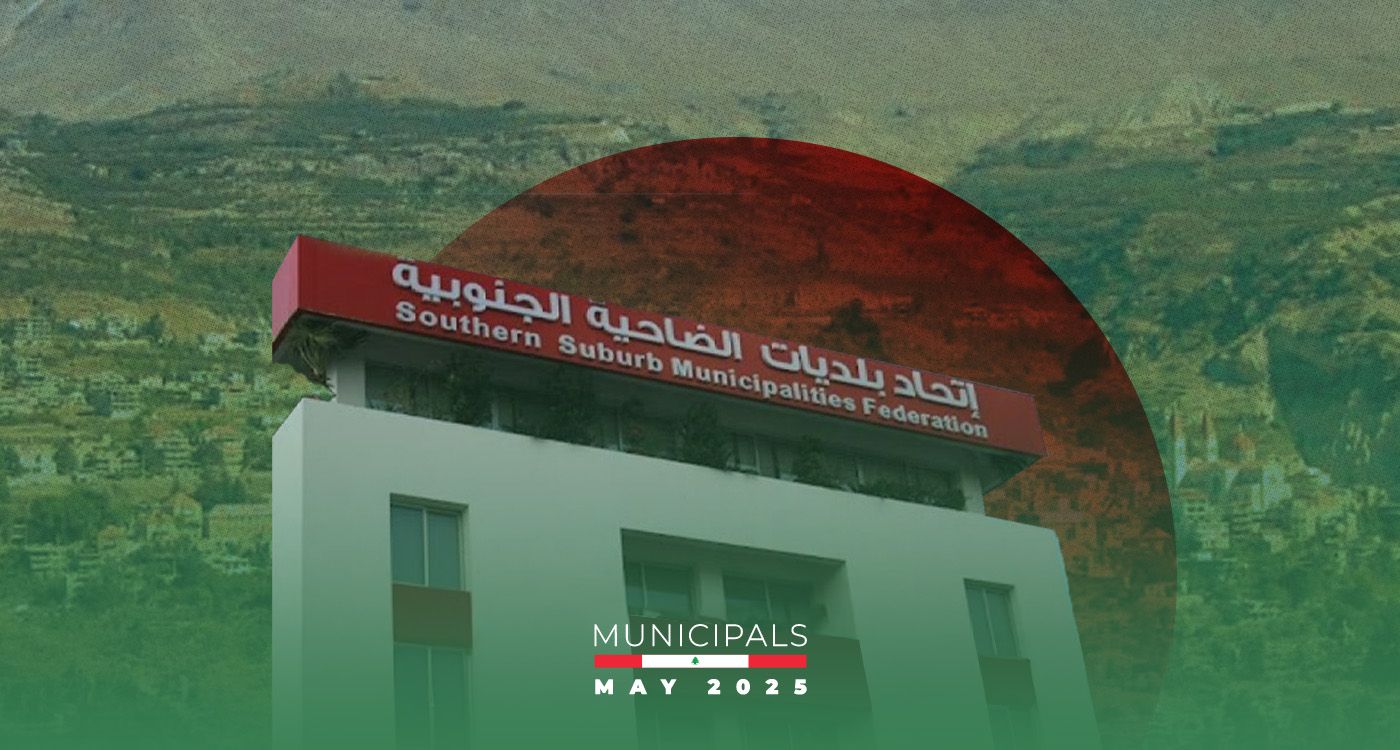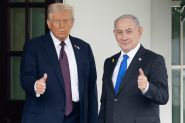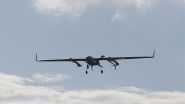
As Lebanon prepares for its first municipal elections since the October 2023 war with Israel, attention is turning to the southern suburbs of Beirut, or Dahyeh—a bastion of Hezbollah.
The Shiite-majority area has long been under the political influence of Hezbollah and its ally, the Amal Movement. But this year’s vote carries significance far beyond local governance. It is seen as a referendum on political loyalties, an indicator of public frustrations, and a test of whether parties can still mobilize a war-stricken, economically devastated population.
On the ground, Hezbollah and Amal have formed joint electoral committees to organize the elections scheduled for May 4, including voter mobilization across Dahyeh’s neighborhoods. They have largely preserved the division of municipal councils established during the 2016 elections. In areas considered Amal strongholds, the movement engages families, political groups, and local figures to select candidates, while Hezbollah does the same in its own zones of influence.
Why These Elections Matter
After multiple delays since 2023, the municipal elections come amid profound national uncertainty. In areas like Dahyeh—heavily damaged by Israeli airstrikes and still facing intermittent attacks despite a ceasefire—the elections are about more than basic services. They are about survival, reconstruction, and whether residents still trust their traditional leaders to deliver.
As neighborhoods crumble and basic services collapse, municipal governance has taken on heightened importance. Newly elected officials will not only manage routine administration but will also lead the post-war recovery—a monumental task given the absence of state funding, rampant inflation, and ongoing economic crisis.
Financial Strain and Limited Central Support
Municipalities across Lebanon are operating under severe financial constraints. They rely heavily on the Independent Municipal Fund, which has been largely depleted amid the state's financial collapse. Even municipalities like Ghobeiry—often cited as a model of Hezbollah-led local governance—are struggling to maintain basic services under mounting pressure.
The Union of Municipalities of the Southern Suburbs
To counter these limitations, several municipalities have joined forces under the "Union of Municipalities of the Southern Suburbs," headquartered in Ghobeiry. This coalition includes Ghobeiry (21 members), Haret Hreik (18), Bourj el-Barajneh (21), and the combined areas of Mreijeh, Tahwitat el-Ghadir, and Laylaki (15).
The union aims to pool resources, coordinate infrastructure projects, and unify development efforts in a region facing disproportionate destruction.
However, intensified political consultations ahead of the elections suggest a shift from previous cycles. Party leaderships are reportedly prioritizing consensus with families and local figures over strict partisan appointments—seeking to better reflect public sentiment in war-stricken areas like Dahyeh, the Bekaa, and southern Lebanon. The mood is increasingly intolerant of imposed candidates or traditional family rivalries, creating space for independents and alternative lists, similar to what occurred in the 2004 elections. This shift could reshape the future composition of the Union of Municipalities.
Signs of Change in Ghobeiry
Although candidate lists have yet to be finalized, sources close to Hezbollah indicate a notable shift: the party has reportedly agreed to return control of Ghobeiry’s municipal council to the Al-Khansa family. Ghobeiry is Lebanon’s third-largest municipality by geography, population density, economic activity, and urban development. Though officially part of Baabda District, it borders Beirut directly and is deeply integrated with the capital.
Recently, banners appeared across the town announcing Ahmad Al-Khansa as a candidate for municipal council president.
Hezbollah and Amal: Still in Control?
Hezbollah faces mounting challenges, including economic sanctions, Israeli strikes that have disrupted its organizational network, and rising discontent within its base.
The upcoming elections will test whether Hezbollah can still mobilize voters and retain control of key municipalities—or whether cracks are widening within its support.
Amal, traditionally Hezbollah’s ally in Dahyeh, also faces scrutiny over corruption allegations and questions about its ability to deliver on local promises. Both parties are banking on unity and historical loyalty to withstand increasing criticism.
Beyond Sectarian Lines?
Although Dahyeh is predominantly Shiite, it is not monolithic. The area also includes Sunni families and Christian enclaves. These elections will reveal whether candidates seek to bridge sectarian divides—or whether traditional sectarian clientelism will continue to dominate.
Corruption vs. Accountability
Corruption remains a chronic issue in Lebanon’s municipalities. Allegations of nepotism, embezzlement, and misuse of public funds have plagued local governance. With no serious auditing mechanisms, public trust in municipal councils has steadily eroded.
This year’s elections will also test whether local democracy in Lebanon can evolve toward greater transparency and accountability—or remain trapped in old patterns.
Will People Vote?
With the municipal elections in Mount Lebanon, including Dahyeh, only days away, voter turnout remains an open question.
War has displaced thousands, deepened cynicism toward political institutions, and aggravated the economic crisis in Dahyeh. Yet sectarian loyalty remains deeply rooted. Hezbollah and Amal operate extensive social, educational, and medical networks that fill critical gaps left by the state, making them more than political parties—they are essential service providers and, for many, lifelines.
The Stakes Are Local—But Also National
Ultimately, the municipal elections in Beirut’s southern suburbs are about far more than trash collection or road repairs. They reflect a broader political battle—between stagnation and reform, loyalty and disillusionment, hopelessness and renewed participation.
In Ghobeiry, Haret Hreik, Bourj el-Barajneh, and beyond, voters face a stark choice: to double down on the familiar or to seek a different future in the aftermath of war and economic collapse.
One thing is certain: the outcome in Dahyeh will reverberate far beyond its borders.




Comments